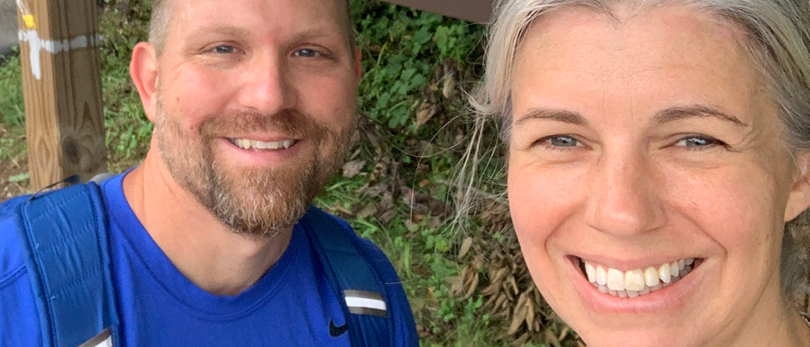Just over a decade ago, Alison Wisnom, CRS, was looking to make a career change. She owned a commercial furnishings company in Maryland at the time and had a neighbor who was a real estate agent. That neighbor let her shadow her to see what the job was like, and the rest is history.
In 2011, Wisnom got her first real estate license and began working alongside her mentor. She loved her new industry and worked at the company for a year before her husband received a military-related job opportunity in Hawaii. She decided to experience Hawaii for a year, getting an opportunity to really learn about the area before she pursued her second real estate license and started working for a local boutique agency, Hawaii Life Real Estate, in 2013.
Wisnom’s husband’s job required them to move back to Maryland in 2017, where she has been working since. Her personal experience with the military has given her a valuable perspective and understanding that’s made her a more sympathetic and flexible agent. She now uses her expertise to teach her colleagues how they can be the right agent to better serve the military community.
An agent for military personnel
The military has been a part of Wisnom’s life since she was a child. Growing up, her father worked as a Navy officer, which was her first exposure to the lifestyle. She went on to receive a Reserve Officer’s Training Corps (ROTC) scholarship to attend college at Tulane University and became an Army Signal Corps officer upon graduation. She later chose to leave the military and started the furniture business. Her husband was also an Army officer, then later transitioned to the civilian service in the Department of Defense, which is why her family moved between Maryland and Hawaii.
“I try to educate agents about the military community, and I do what I can for that community because I understand the difficulties and complexities,” Wisnom says. Some of these complexities include moving every three to five years, spouse under- or unemployment and the emotional toll deployments take on the family.
“We call the challenge of frequent moves ‘pattern of life replacement’,” she explains. “You’re uprooting and going somewhere else and you’re trying to find the all the things you had before, in a new location.” These military-affiliated homebuyers are then forced to find their new favorite coffee shops, new activities for their children, and a new group of friends. These families often have to move on short notice, as well. Having an agent who understands this is extremely beneficial to families in this situation.
“I have often felt like I’m a host to them in their new location,” she says. “It’s not just about the house or what school the kids will go to.” Wisnom enjoys being able to welcome military families into their new communities and act like a tour guide of sorts. This work is so important to her that she teaches classes on the subject, having worked with a company called MILLIE to help the National Association of REALTORS® to rewrite some of their curriculum on military relocation.
Making moves within the industry
When moving back to Maryland from Hawaii, she did not want to refer her business to local agents and start over in Maryland. She took a leap of faith and decided that she would create a workflow with her business partner in Hawaii that would allow her to maintain her operations there. She says she kept the business running behind the scenes while her partner stayed client-facing, and they successfully ran their operation this way for two-and-a-half years.
At that time, she decided that she wanted to shift gears and try a management role. She accepted a position as an assistant manager with Coldwell Banker Realty in Annapolis, Maryland, where she currently resides. Then came COVID-19.
“Having to move my business from Hawaii to Maryland and having gone through COVID-19 in this industry really stretched my skills,” she reflects. “There are a lot of prescribed models about how this business is done, and I think we are finding the flexibility and freedom to challenge those assumptions.”
She was furloughed from Coldwell Banker in the early 2020 due to COVID-19, so she decided to go back to selling. Her brief managerial experience sparked her interest in teaching, as she would spend time assessing what agents didn’t know. As the demand for online education skyrocketed in 2020, she began creating online coursework to help fill the gaps that she’d seen. Now, she teaches broker courses and the Military Relocation Professional (MRP) certification course at her local association.
“All of these experiences allowed me to see that there’s a lot more to this industry than buying and selling,” she says.
What’s next? Become a CRS
After getting her license in Hawaii, Wisnom asked her broker what she should do next. She encouraged her to pursue a CRS designation, saying it was the best education in the industry.
“In our community, we understand that having those letters behind your name means you have achieved a higher level of business and have the experience and education to best serve clients,” she said.
Thanks to being one of the only agents with her brokerage who knew about military news and had many military connections, she was able to gather many leads. This led to her bringing in enough sales volume to achieve the CRS Designation in 2016.
“I jokingly refer to RRC as a ‘rabid referral network,’” she laughs. “The connections that can be made are endless and invaluable.” When she sees that an agent has their CRS Designation, she knows that she’s dealing with someone she can trust will do great work for her clients.
Photo: Alison Wisnom, CRS, (right), with her husband on a hiking trip.








